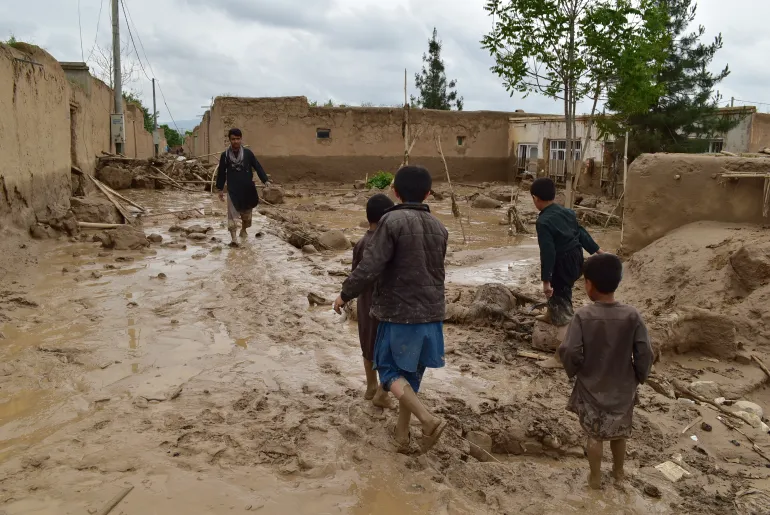
AFGHANISTAN, May 13 – Islamic Relief has initiated urgent response measures in the wake of catastrophic floods that have engulfed Afghanistan, claiming over 300 lives with many more individuals still unaccounted for. The devastation follows relentless torrential rains that swept through the region, obliterating roads, agricultural lands, and fragile homes, exacerbating the already dire situation in one of the world’s most severe food crises.
Umair Hasan, Islamic Relief’s Country Director in Afghanistan, expressed grave concern over the unfolding tragedy, stating, “Huge rivers of water and mud suddenly swept through villages, destroying vital farmland and washing away people’s fragile homes. Many people are reportedly still missing so the number of people affected could still rise.”
Hasan emphasized the urgent need for shelter, food, and hygiene supplies, as the displaced populations face the looming threat of waterborne diseases.
The humanitarian response aims to provide immediate assistance to families grappling with homelessness, hunger, and loss of assets. Islamic Relief intends to distribute food, essential supplies, and cash assistance to facilitate access to shelter and basic necessities through local markets. Moreover, efforts will be directed towards addressing the needs of vulnerable groups, including individuals with disabilities and orphaned children, who are disproportionately affected by the crisis.
While the majority of casualties have been reported in Baghlan province, where Islamic Relief already has ongoing projects, the repercussions of the floods have reverberated across neighboring regions such as Takhar and Badakhshan. Local authorities have declared a state of emergency in response to the unfolding humanitarian catastrophe.
The unfolding tragedy underscores the relentless onslaught of natural disasters and socio-economic challenges faced by the people of Afghanistan in recent years, compounded by the neglect of the international community. Islamic Relief’s intervention serves as a stark reminder of the urgent need for sustained support to alleviate the suffering of communities grappling with the aftermath of successive crises.



